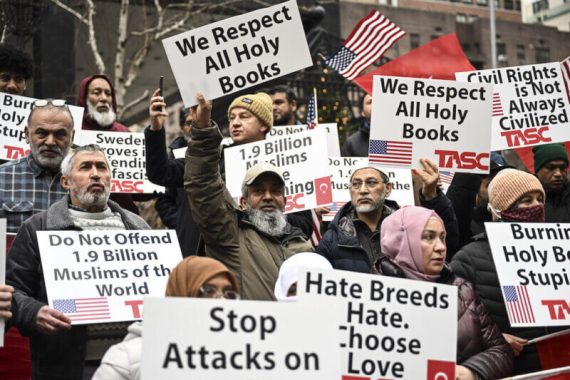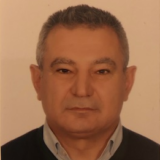F
ollowing Russia’s invasion of Ukraine in February 2022, NATO membership was deemed so essential and urgent for Russia’s neighbouring countries, Sweden and Finland, that an intense diplomacy traffic was initiated immediately after the start of the war. Just two months later, on May 18, 2022, Sweden and Finland simultaneously submitted their official applications to NATO Secretary General Jens Stoltenberg to join the Alliance. As the Russia-Ukraine war approaches the completion of its first year, Stoltenberg stated that “in a more dangerous world, it is even more important that Sweden and Finland become NATO members.”
The accession, which requires the approval of all NATO member states, has brought forward the long-lasting policy of disregard by Sweden and Finland of Turkey’s security concerns. Sweden and Finland have close relations with terrorist organizations such as the PKK and the DHKP-C, which pose a great national security threat to Turkey. The policies and practices of these two countries have now become challenges that need to be addressed for Turkey to give them the green light to join NATO.
On June 28, 2022, Sweden and Finland signed a tripartite agreement with Turkey at the NATO Leaders’ Summit held in Madrid, according to which the two Nordic countries would not support the PYD/YPG and FETO as banned terrorist organizations. In particular, Finland and Sweden should prevent the activities of the PKK and all other terrorist organizations, their extensions, and the activities of persons involved in or affiliated with these organizations.
Sweden’s attitude since signing the agreement
Immediately after the agreement, a positive process started. Turkey viewed the significant change in perceptions and discourses towards the PKK and PYD, especially in Sweden, as an important development.
Sweden made efforts to take concrete steps towards the extradition of terrorists sought in Turkey’s fight against the PKK/PYD terrorist organizations. The extradition of Mahmut Tat, who was convicted of PKK membership, to Turkey was another remarkable step taken by Sweden. Turkey expressed its satisfaction with the constitutional amendments that came into force on January 1, 2023 in Sweden, allowing for the adoption of stricter laws in the fight against terrorism.
However, some policies and practices that will overshadow these positive developments have recently come to the fore. On January 13, 2023, supporters of the PKK directly targeted President Recep Tayyip Erdoğan at a demonstration where a mannequin resembling Erdoğan was hanged in front in front of the city hall in the capital, Stockholm. Immediately afterwards, prosecutor Lucas Eriksson declared that there was no need to even initiate an investigation into the acts in question, basing his stance on “freedom of expression” and stated that these acts cannot be punished under Swedish law.
The last straw was the permission given to burn the Qur’an on January 21, 2023, near the Turkish Embassy in Stockholm. Rasmus Paludan, the leader of the racist Stram Kurs based in Denmark and a Swedish citizen, burned the Qur’an as the police simply watched. The reaction of the Swedish government was again weak, and Prime Minister Ulf Kristersson was content with stating that what was done was “disrespectful.”
On the same day, two hours after the burning of the Qur’an, a protest took place in which banners reading “We are all PKK” were raised. In Turkey’s eyes, it was another demonstration and show in favor of terrorism which was allowed to take place. After the incident, Swedish Foreign Minister Tobias Billström repeated on his Twitter account, the now routine “Sweden has a wide-ranging freedom of expression.”
Is Sweden exempt from the understanding of freedom of expression that developed in Europe with the provisions of the European Convention on Human Rights (ECHR) and the jurisprudence of the European Court of Human Rights dating back more than half a century? Should freedom of expression be understood differently in Sweden than in other Council of Europe member states?
In order to give a legally consistent answer to these questions, it is necessary to look at how the right of freedom of expression is defined in the ECHR and understood by the European Court of Human Rights.
The limits of freedom of expression
The concept of “limitless freedom of expression,” which is drawn in the official statements of Sweden at the government level, is fundamentally incompatible with the real legal situation. When the statements made are examined legally, they show the intention to create a political approach over a “sympathetic” concept such as freedom of expression rather than relying on a legal basis.
The ECHR, to which forty-six European states, including Sweden and Turkey, are parties, defines the right in question, under the title of “Freedom of expression” in Paragraph 1 of Article 10. Can people say or express what they want even if they hurt millions of people, or even just one?
The answer to the question is basically given in Paragraph 2 of Article 10, which clearly puts forward that freedom of expression is not unlimited:
“The exercise of these freedoms, since it carries with it duties and responsibilities, may be subject to such formalities, conditions, restrictions or penalties as are prescribed by law and are necessary in a democratic society, in the interests of national security, territorial integrity or public safety, for the prevention of disorder or crime, for the protection of health or morals, for the protection of the reputation or rights of others, for preventing the disclosure of information received in confidence, or for maintaining the authority and impartiality of the judiciary.”
The court stresses that freedom of expression cannot be regarded as the right to humiliate others on the basis of race, language, religion or gender. In this context, the court applies the principles of “proportionality” or “balancing of rights” while drawing the limits of freedom of expression.
While the person who burned the Qur’an in Sweden had many ways to express his views on the Qur’an without insulting Muslim believers, burning the Qur’an should be clearly considered disproportionate. The person in question did so in a way that would harm the rights and honor of others. As a matter of fact, the court has stated that it is of the opinion that it is necessary to determine whether comments regarding religion are insulting and directed at believers, or an abusive attack against sacred symbols.
If the act of burning the Qur’an is accepted as a form of legitimate expression, attacking mosques, which are places of worship for Muslims, and even burning mosques could be presented as a form of acceptable expression too. This is an action that cannot be considered legitimate from any point of view.
Article 9 of ECHR
The Swedish political and judicial organs’ disregard for this disproportionality essentially violates Article 9 of the ECHR, which regulates freedom of religion and conscience, and Article 14, which regulates the prohibition of discrimination. Burning the Qur’an has harmed the fundamental rights of Muslims in particular. Therefore, the statements of the Swedish foreign minister or other officials along the lines of “there is a wide area of freedom of expression” in Sweden, which sound good at first glance, are essentially an effort to cover up attacks on other fundamental rights through freedom of expression.
Recommended
As far as the acts related to terrorism, the court stated in one case that when the publication of statements from banned terrorist organizations constitutes a danger of public incitement to commit a public provocation to commit a terrorist offence or vindication of terrorism, it is not within the limits of freedom of expression.
Allowing the PKK/YPG terrorist organization supporters to carry out acts of terrorist propaganda in Sweden clearly carries the “danger of public incitement to committing a terrorist crime or laundering terrorism.” These actions, which center on the signs of a terrorist organization and discourses such as “We are all PKK,” clearly should be seen and understood as acts of vindication of terrorism and illegal violence.
It is clear that ECHR case law proves that what is happening or allowed to happen in Sweden is outside the limits of freedom of expression and violates a series of other fundamental human rights. It is unlawful for Sweden to turn a blind eye to these acts under the guise of freedom of expression. Instead, it should ban the so-called protests, and extradite or prosecute terrorist suspects and criminals.





